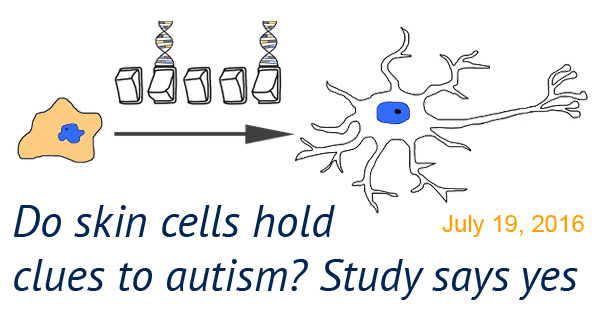Check out other stories from the Latest News
Lab-Generated Stem Cells Hold Clues to Autism
By Chelsea E. Toledo on July 19, 2016

Background: Induced pluripotent stem cells (iPSCs) are mature adult cells that have been reprogrammed by scientists to behave like embryonic stem cells – which have the potential to become nearly any cell type in the body, including neurons. Scientists rely upon iPSCs to learn more about rare or mysterious conditions such as Autism Spectrum Disorder (ASD) by studying cells related to the condition.
What’s New: On June 29, 2016, the journal Molecular Neurobiology published a study using iPSCs to reveal clues about genetic expression, neural makeup and electrical activity in people with ASD. The researchers took skin cells from three male children who had ASD but no other neurodevelopmental conditions, as well as from their three male siblings without ASD. They then reprogrammed those skin cells to behave as embryonic stem cells and monitored their changes. In examining the neurons generated from these iPSCs, the researchers found differences in electrical activity and expression of genes related to signaling between cells in the participants with ASD compared to their typically developing siblings.
Why it’s important: This study identified 161 genes expressed differently in people with ASD, with similar features observed in the neurons of all three unrelated study participants with ASD. Future studies working with larger participant groups could further refine the cellular features differentiating cells of people with ASD during gestation, pointing to the precise process by which the disorder develops.
Help me understand :
| Source(s) : |
| Tweet |

